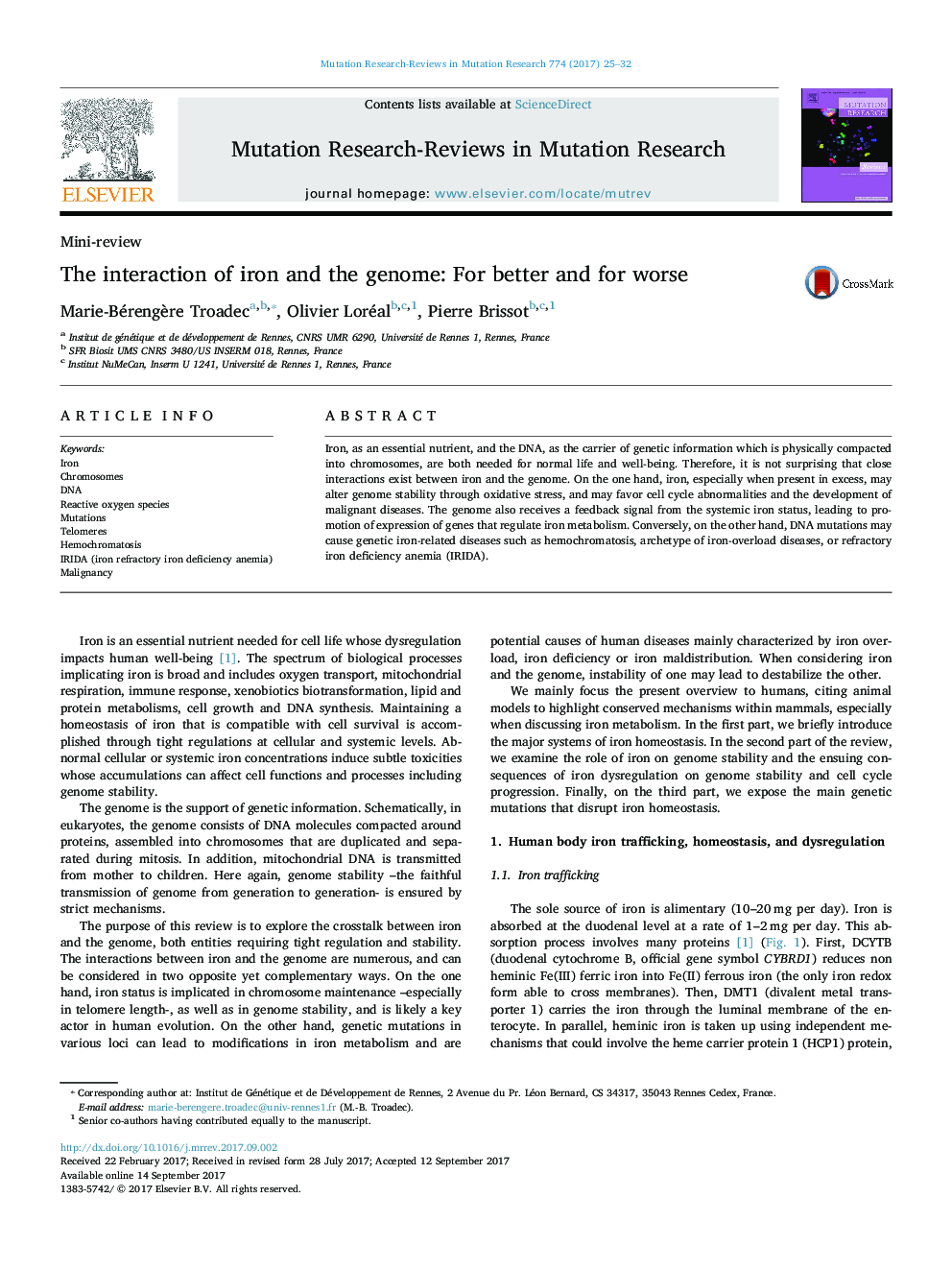| Article ID | Journal | Published Year | Pages | File Type |
|---|---|---|---|---|
| 5528877 | Mutation Research/Reviews in Mutation Research | 2017 | 8 Pages |
Iron, as an essential nutrient, and the DNA, as the carrier of genetic information which is physically compacted into chromosomes, are both needed for normal life and well-being. Therefore, it is not surprising that close interactions exist between iron and the genome. On the one hand, iron, especially when present in excess, may alter genome stability through oxidative stress, and may favor cell cycle abnormalities and the development of malignant diseases. The genome also receives a feedback signal from the systemic iron status, leading to promotion of expression of genes that regulate iron metabolism. Conversely, on the other hand, DNA mutations may cause genetic iron-related diseases such as hemochromatosis, archetype of iron-overload diseases, or refractory iron deficiency anemia (IRIDA).
